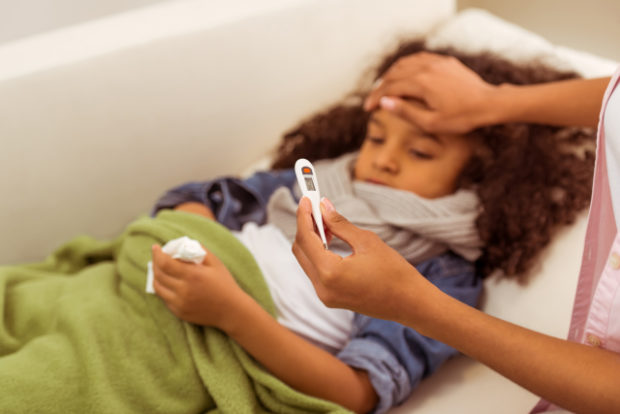Gastrointestinal distress without respiratory symptoms may indicate COVID-19 infection in children, says study

The study details clinical features in five children admitted to hospitals with non-respiratory symptoms who were later diagnosed with COVID-19. Image: Shutterstock/George Rudy via AFP Relaxnews
Children with gastrointestinal symptoms but without associated respiratory problems could be infected with COVID-19, warns a new Chinese study.
The study, published in the journal Frontiers in Pediatrics, suggests that children admitted to a hospital for non-respiratory symptoms could nonetheless test positive for COVID-19.
“Most children are only mildly affected by COVID-19 and the few severe cases often have underlying health issues. It is easy to miss its diagnosis in the early stage, when a child has non-respiratory symptoms or suffers from another illness,” explains the main author of the study, Dr. Wenbin Li, of the Tongji Hospital Department of Pediatrics in Wuhan, China.
In the study, Li and his team detail the clinical features of five children admitted to a hospital with non-respiratory symptoms, who were later diagnosed with pneumonia and COVID-19. One of them had consulted for kidney stones and another for head trauma.
“While their initial symptoms may have been unrelated, or their COVID-19 symptoms were initially mild or relatively hidden before their admission to hospital, importantly, four of the five cases had digestive tract symptoms as the first manifestation of this disease,” point out the researchers.
The study, which points to gastrointestinal symptoms in children as a first manifestation of potential COVID-19 infection in the gastrointestinal tract, notes that receptors in the lungs targeted by the virus are also found in the intestines.
While digestive disorders are indeed recognized as symptoms of COVID-19, they are described as “atypical” when compared to “classic” signs that correspond to viral infection of the respiratory tract, such as coughing.
Although COVID-19 tests can sometimes result in false-positive diagnoses, Li is convinced that all five children were infected with the disease. But given the very small number of patients, he points out that further research on similar clinical cases will be needed to confirm the hypothesis of initial infection via the gastrointestinal tract in children. RGA
RELATED STORIES:
Vitamin D deficiency linked to COVID-19 severity by new research
Higher BMI in childhood linked to bigger risk of heart disease, diabetes in later life — study
For more news about the novel coronavirus click here.
What you need to know about Coronavirus.
For more information on COVID-19, call the DOH Hotline: (02) 86517800 local 1149/1150.
The Inquirer Foundation supports our healthcare frontliners and is still accepting cash donations to be deposited at Banco de Oro (BDO) current account #007960018860 or donate through PayMaya using this link.